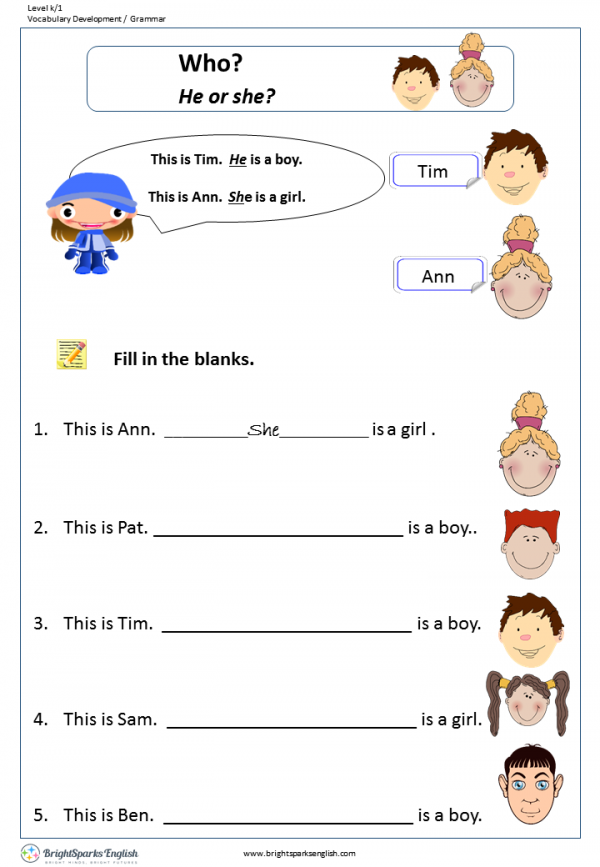How to support a child with down syndrome
Parenting a child With Down syndrome
Written by WebMD Editorial Contributors
When your child has Down syndrome, one of the most useful things you can do is learn as much about it as you can. You might search online for programs and resources to help your child.
Along the way, maybe you talk with other parents whose kids have Down syndrome so you can learn tips and find out what to expect. And, as your child grows, you can work with doctors, therapists, teachers, and other specialists.
Beyond these big-picture tasks, it can also help to know what you can do day to day. Not only to support your child, but to take care of yourself, too.
How to Support Yourself
Every family has their joys, stresses, and challenges, but when you have a child with Down syndrome, things look a little different. Besides juggling school, music lessons, sports, and jobs, you typically have a lot of extra visits with doctors and therapists in the mix.
That makes it even more important to accept help when it’s offered and to pay attention to your own needs. Here are a few ideas:
- Build a support system. Invite your friends and family to take part in caregiving. They can let you have a little time to yourself to walk, read a book, or just zone out for a while. A break, even a small one, can help you be a better parent and partner.
- Talk about your challenges. People want to help, but don’t always know how. A simple, “It’s hard to get a healthy dinner on the table with all these appointments,” opens a door and gives them ideas of what they can do.
- Keep a list of things you need. And don’t be afraid to use it. Next time someone says, “Just let me know how I can help,” you’ll be ready.
- Find time for friends. Even if it’s just a small moment after the kids go to bed, friends can help you laugh and recharge after a long week.
- Go easy on yourself. Everyone needs a break. You might also think about seeing a therapist. They can help you work through your feelings and give you tools to handle everyday stresses.
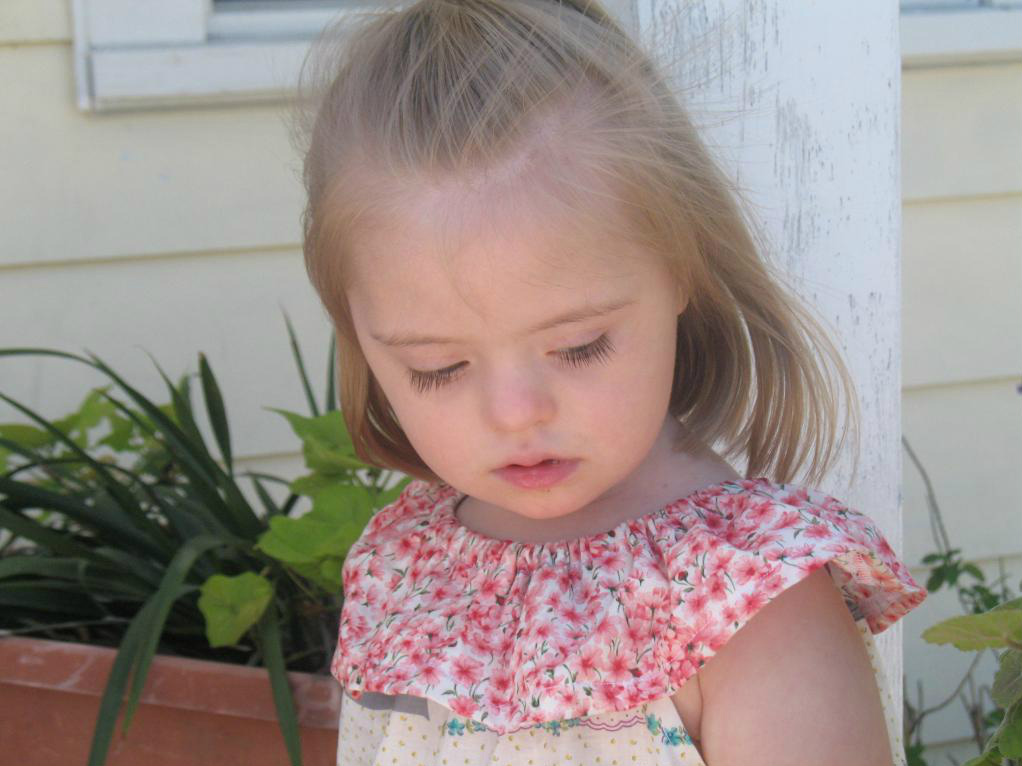
- Take care of your health. Exercise and eat well, even when you feel burnt out. Try to make a plan and stick to it as best you can.
Everyday Tips
Like most children, kids with Down syndrome tend to do well with routine. They also respond better to positive support than discipline. Keep both of those things in mind as you try the following tips.
Do all the run-of-the-mill kid things:
- Give your child chores around the house. Just break them up into small steps and be patient.
- Have your child play with other kids who do and don’t have Down syndrome.
- Keep your expectations high as your child tries and learns new things.
- Make time to play, read, have fun, and go out together.
- Support your child in doing day-to-day tasks on their own.
For everyday tasks:
- Create a daily routine and stick to it as best you can. For example, the morning might be “get up / eat breakfast / brush teeth / get dressed.
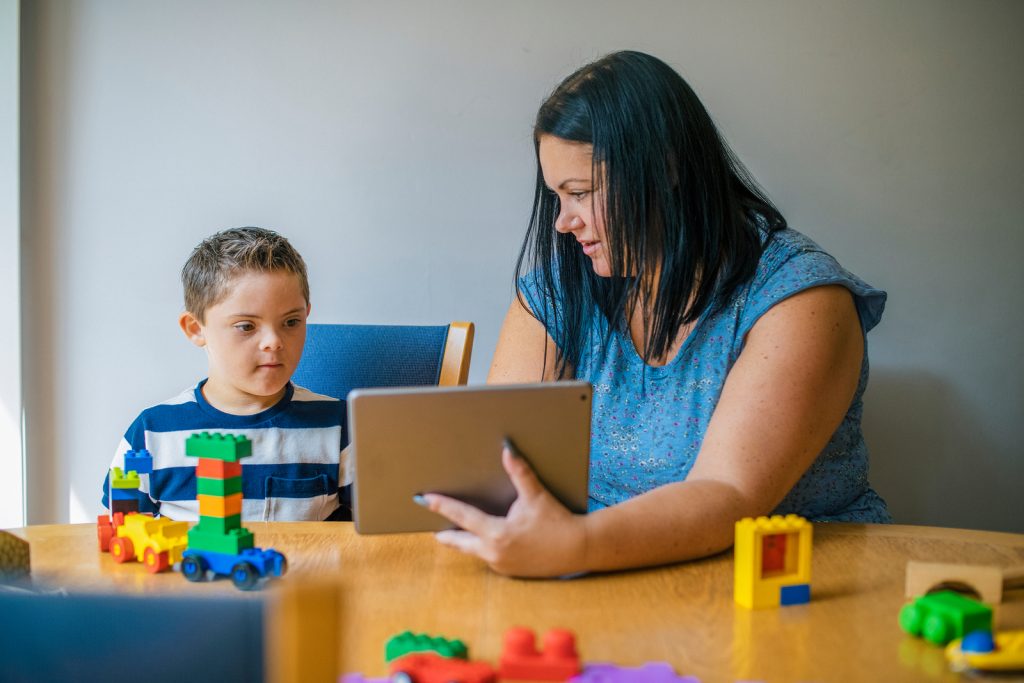 ”
” - Help your child change from one activity to the next with very clear signals. For younger kids, seeing a picture or singing a song can help.
- Use pictures to make a daily schedule your child can see.
To help your child with school, you might:
- Avoid saying “That’s wrong” to correct mistakes. Instead, say, “Try it again.” Offer help if it’s needed.
- As you work with doctors, therapists, and teachers, focus on your child’s needs rather than on the condition.
- Look at what your child is learning at school and see if you can work those lessons into your home life.
When you talk to your child, keep it simple -- the fewer steps, the better. For example, try “Please put your pajamas on,” instead of “OK, it’s time for bed. Let’s get your teeth brushed, face washed, pajamas on, and pick out some books.”
Have your child repeat directions back to you so you know you’ve been understood. Name and talk about things your child seems to get excited about.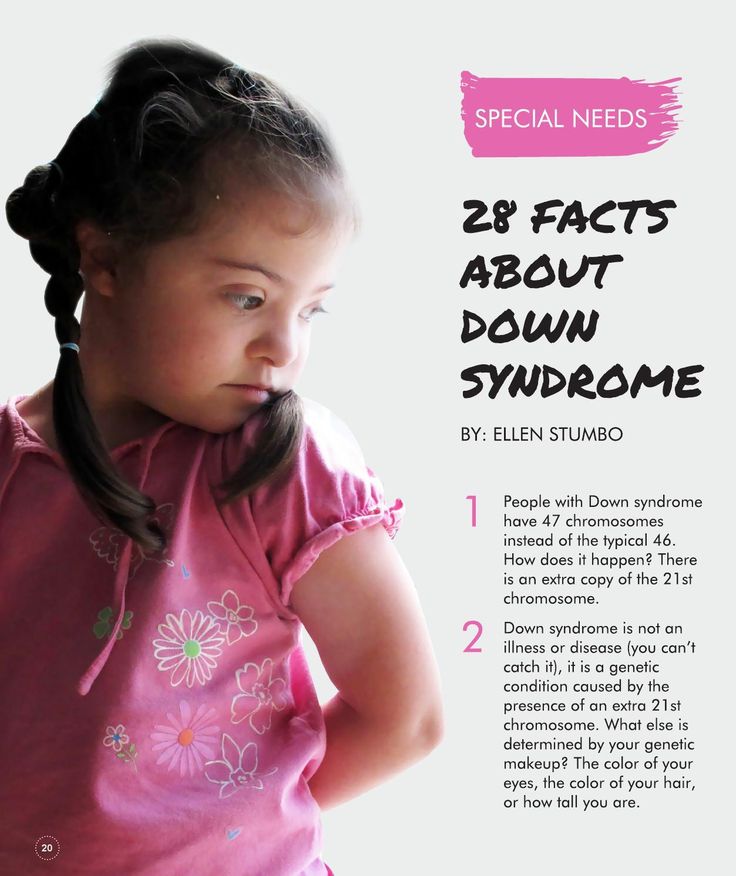
Give Your Child Some Control
It’s important for all kids to feel like they have some control over their lives. It’s even more important for kids with Down syndrome, and it’s one way to help them live a fulfilling life. For example, you can:
- Let your child make choices when it makes sense to. This can be as simple as letting them choose what clothes to wear.
- Allow them to take reasonable risks. This is a challenge every parent faces. You need to protect your children, but also let them see what they can handle.
- Support them in solving problems, like how to deal with an issue with friends or approach a problem at school. You don’t have to fix it for them, but help them do it themselves.
6 Ways to Support Children with Down Syndrome in the Montessori Classroom
by Heather White
Wednesday, May 25, 2022
The Montessori environment and materials are helpful for any child, but neurodivergent students may uniquely benefit from a learning environment that naturally addresses some of their challenges.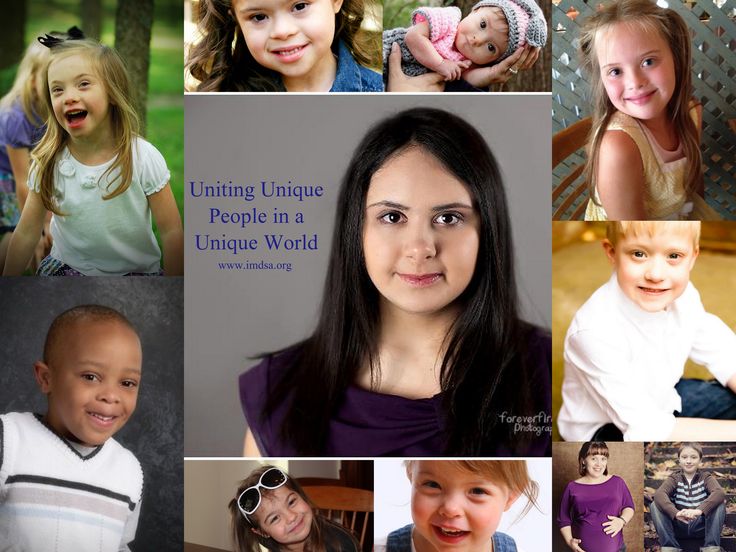 The minimalist design that is common in a Montessori classroom not only adds visual appeal, but also encourages simplicity over stimulation, helping a child with Down syndrome feel less of the anxiety and frustration that may come from attempting to absorb too many stimuli at one time. Montessori materials isolate a single skill and are self-correcting, making it easier for children to focus and remain on task. However, despite the inherent benefits of a Montessori environment, additional support from the guide may be necessary to help neurodivergent students experience the greatest level of success.
The minimalist design that is common in a Montessori classroom not only adds visual appeal, but also encourages simplicity over stimulation, helping a child with Down syndrome feel less of the anxiety and frustration that may come from attempting to absorb too many stimuli at one time. Montessori materials isolate a single skill and are self-correcting, making it easier for children to focus and remain on task. However, despite the inherent benefits of a Montessori environment, additional support from the guide may be necessary to help neurodivergent students experience the greatest level of success.
What is Down Syndrome?
Down syndrome is a condition in which a person has an extra chromosome. Typically, children are born with 46 chromosomes; children with Down syndrome have an extra copy of one of those chromosomes, chromosome 21. This extra chromosome alters the development of the child’s body and brain, causing both mental and physical challenges. People with Down syndrome usually have an IQ in the mildly-to-moderately low range and common physical features including a flattened face, almond-shaped eyes, a short neck, and poor muscle tone.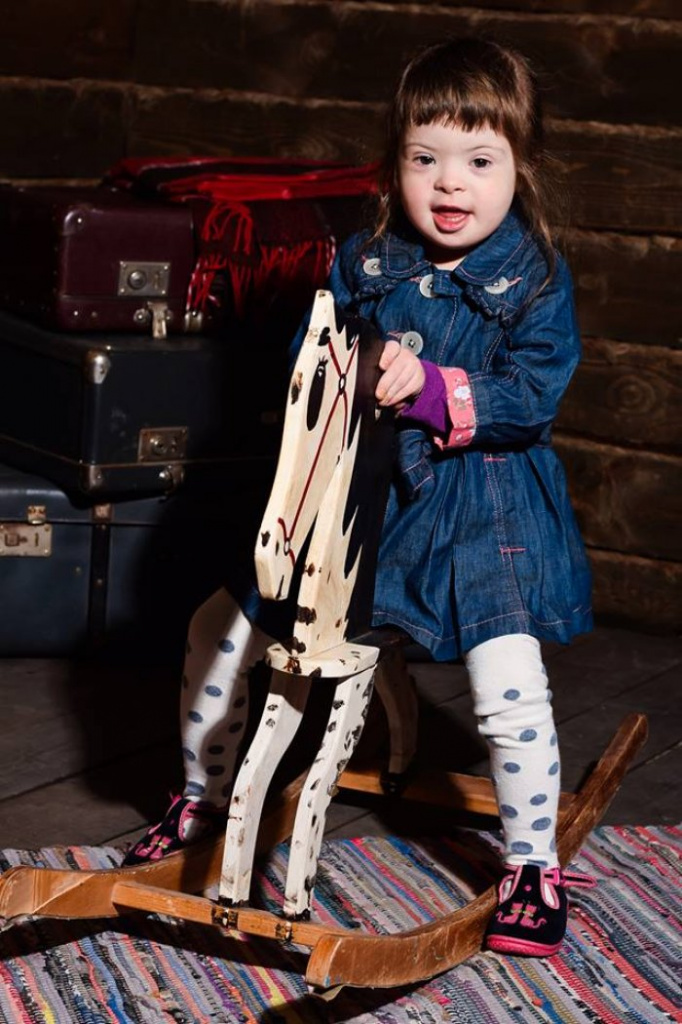
How can down syndrome impact a child’s functioning in the classroom?
Down syndrome can affect learning abilities in different ways. The mild to moderate intellectual impairment can cause delays in speech and motor skills. Small muscle activities including handwriting will likely be affected. Most students with Down syndrome will have short term or working memory difficulties making it more challenging for them to access, understand, and process information at the speed of other children. Students with Down syndrome may also need help with care of self activities including dressing and grooming. These students may have behavior issues, may need visual and auditory accommodations, and may need extra time and assistance with class work.
6 ways to support children with Down syndrome in the classroom
- Provide opportunities for students to serve as social skills role models
Students with Down syndrome generally have good social skills. As is commonplace in a Montessori setting, using this strength to allow students to become role models for their peers in regards to socialization can provide a boost of confidence and an opportunity for them to truly shine.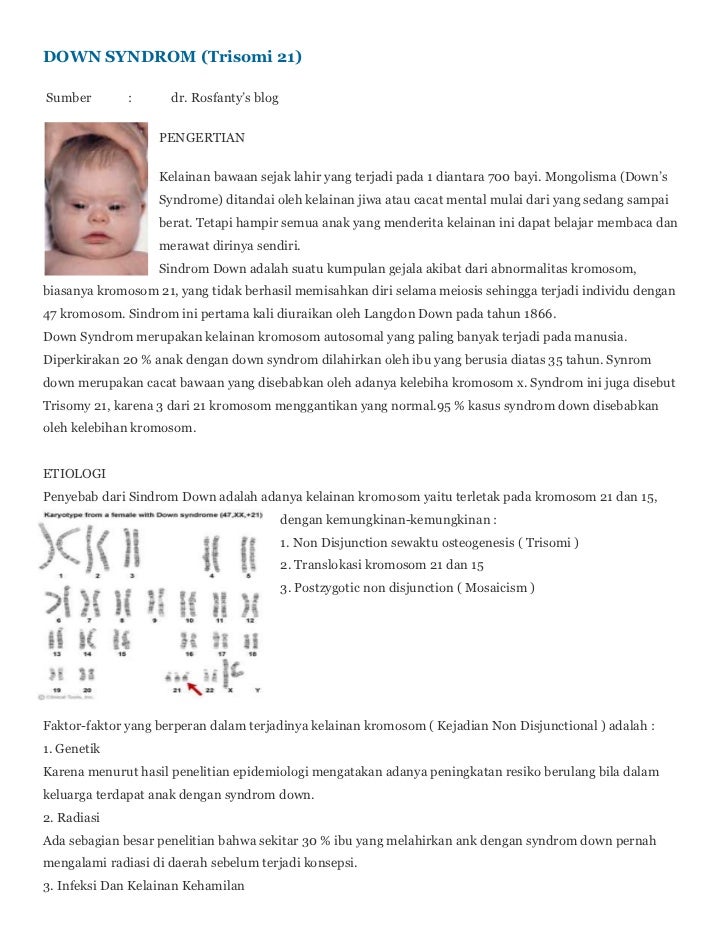
- Allow self-pacing
The Montessori Method encourages following the child and allowing them to set the pace for their learning. Applying this principle gives children with Down syndrome the freedom to take the time they may need to get acclimated to a project and will eliminate the frustration that is likely to arise from the feeling of being rushed. Additionally, if they are feeling as though it is difficult to concentrate on a particular work, children with Down syndrome should be allotted the freedom to move on to another work for a period of time and come back to the first when they feel they are better able to focus. Giving students with Down syndrome enough time to process language and respond is also beneficial in ensuring they comprehend information. - Place a strong emphasis on visual learning
In all possible situations, providing visual aids (such as demonstrations, pictures, and illustrations) can assist students with Down syndrome in understanding and processing information.
- Provide individual motivation
Although intrinsic motivation is encouraged in the Montessori environment, taking the time to foster a sense of motivation for students with Down syndrome is crucial to helping them remain engaged with their learning. - Ensure proper supports are put in place within the prepared environment
For students with Down syndrome, providing the appropriate supports within the prepared environment will be crucial to their success in the classroom. The guide should ensure the child has a choice of work spaces with the appropriate table height and foot support to prevent muscle fatigue. Providing something for a child to lean against to ensure their back is supported will also be important when students with Down syndrome are working on the floor. - Be warm, encouraging, and positive
Although Montessori guides should always exhibit these qualities as the prepared adult, it is imperative that these feelings are made clear to students with Down syndrome who may be feeling discouraged and frustrated.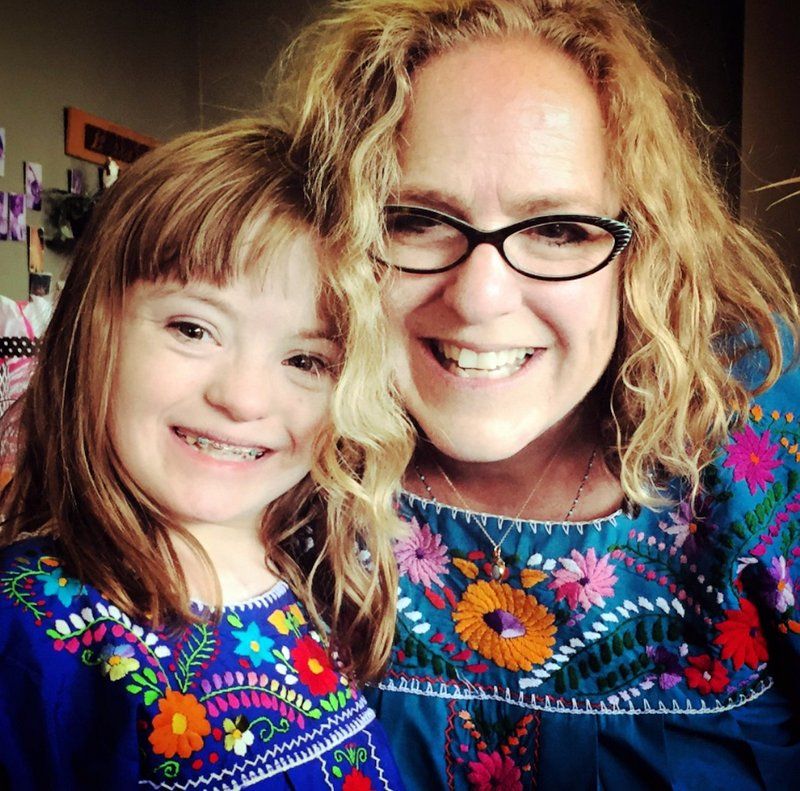 Acknowledging and validating the child’s feelings, encouraging them, and providing praise in the form of specific observations can motivate these students and allow them to reach their full potential.
Acknowledging and validating the child’s feelings, encouraging them, and providing praise in the form of specific observations can motivate these students and allow them to reach their full potential.
About the Author
| Heather White, EdS, is a Montessori in-home teacher and nanny, a Montessori educational consultant for the Andrew’s Institute, a Montessori educator for adult learners, and a volunteer moderator for the Montessori at Home 0 – 3 Facebook page. Formerly, she was a Montessori teacher, Lower Elementary coordinator, and associate head of school. She also has experience as a School Psychologist intern. She is AMS credentialed (Early Childhood, Elementary I). Contact her at [email protected]. |
Interested in writing a guest post for our blog? Let us know!
instructions for parents - Center for Rehabilitation and Development "MARIYA"
Description:
Confusion grips the parents of a special child when the initial shock passes after receiving a disabling diagnosis.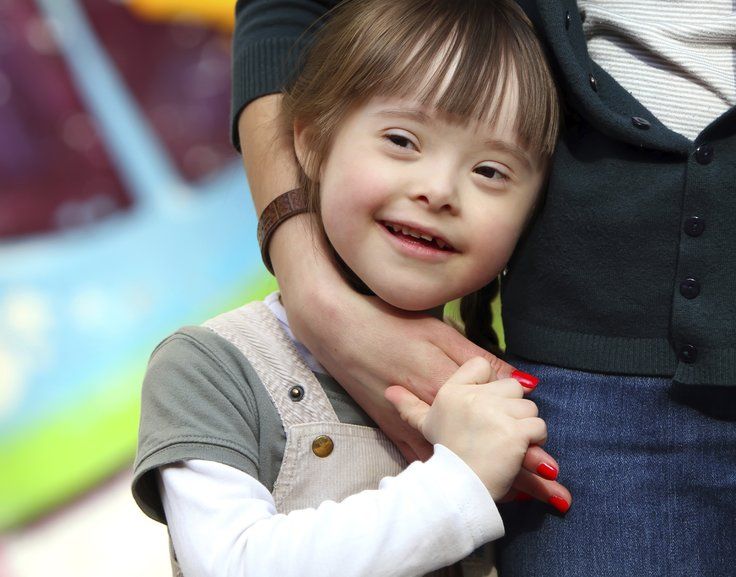 What to do? How not to drown in a sea of information about the disease? Who to contact? Who will help to prescribe the route along which the parents and the child will begin to move in the first years of his life? What therapies will help, and what, on the contrary, will be a waste of time and money, or even harm the baby?
What to do? How not to drown in a sea of information about the disease? Who to contact? Who will help to prescribe the route along which the parents and the child will begin to move in the first years of his life? What therapies will help, and what, on the contrary, will be a waste of time and money, or even harm the baby?
The future of the child depends on the correct answers to these questions, on how qualified and targeted the early intervention will be.
Source:
https://wwww.miloserdie.ru/special/rannyay-pomoshh/#Rredc58490292
Author:
Solodovnikova Marina, Nechaeva Tatyana
en»
Diagnosis of Down's syndrome occurs, as a rule, in utero or when the child is just born. As always in cases of congenital disability, the parents of the child are under great stress and most often find themselves alone with their grief.
But for a child with DS, there is no more important factor in early intervention than emotionally balanced, positive and self-confident parents, so one of the main focuses of helping organizations, which includes our Downside Up family support center, is psychological support for parents.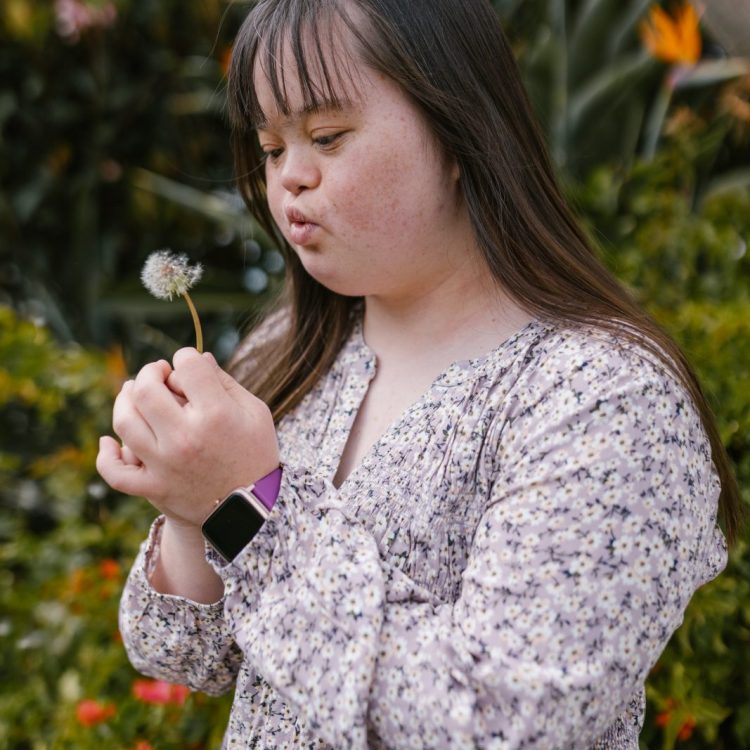
It is very important from the very beginning to give parents all the information that the future of their child is by no means bleak, that his life can be interesting and meaningful with the right psychological and pedagogical support and socialization. But parents still periodically hear from doctors about the lack of prospects for their child, which gives rise to fear and despair.
And if we want to help a child with Down syndrome as early as possible, it is crucial to change the usual practice of telling parents about a child's diagnosis.
We have a very successful experience in Yekaterinburg and the Sverdlovsk region. Together with their regional public organization "Sunny Children" and the Clinical Diagnostic Center "Protection of Maternal and Child Health", we developed a protocol for informing parents about the diagnosis, which, thanks to the efforts of the head doctor of the Center, Elena Borisovna Nikolaeva, became standard for medical institutions in the city and region.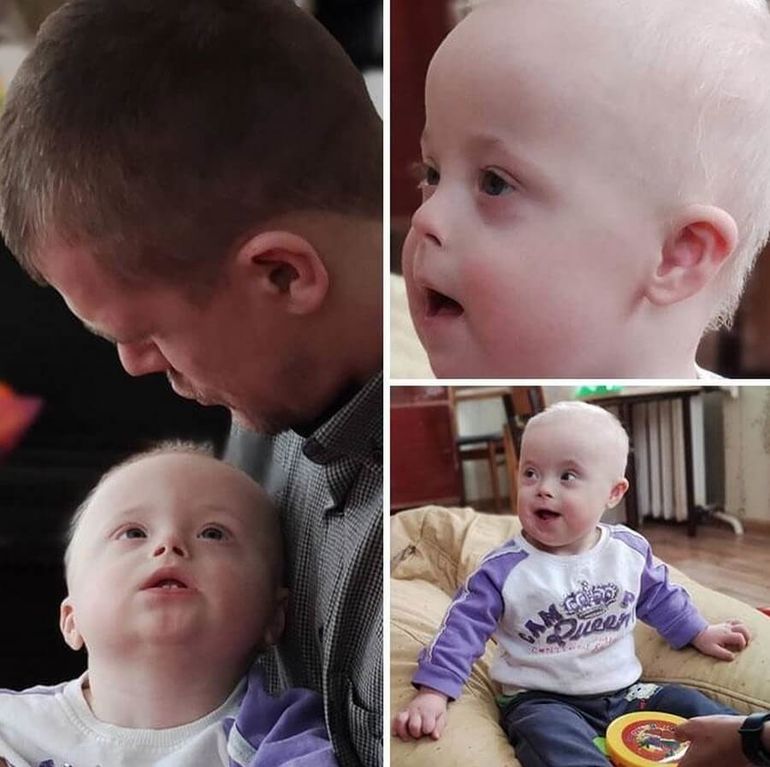
The protocol protects the right of the family to make an independent decision (no one should convince parents to refuse a newborn baby) and the rights of the child to grow up and be brought up in the family, and it also helps the doctor reporting the diagnosis to find the right words, the right form of such a message.
Our country has developed the concept of early assistance to children with Down syndrome , but there is an acute shortage of state centers providing such assistance.
Our Foundation conducted a survey among parents in the regions, from which it follows that in the first year of a child's life, it is especially difficult to find specialists within walking distance.
In order to somehow compensate for this lack, we strive to provide information and methodological support to parents. On our website, they can find a large library of materials dedicated to helping children with DS, which will help parents learn not only what is important to do, but also how they can support their child's development.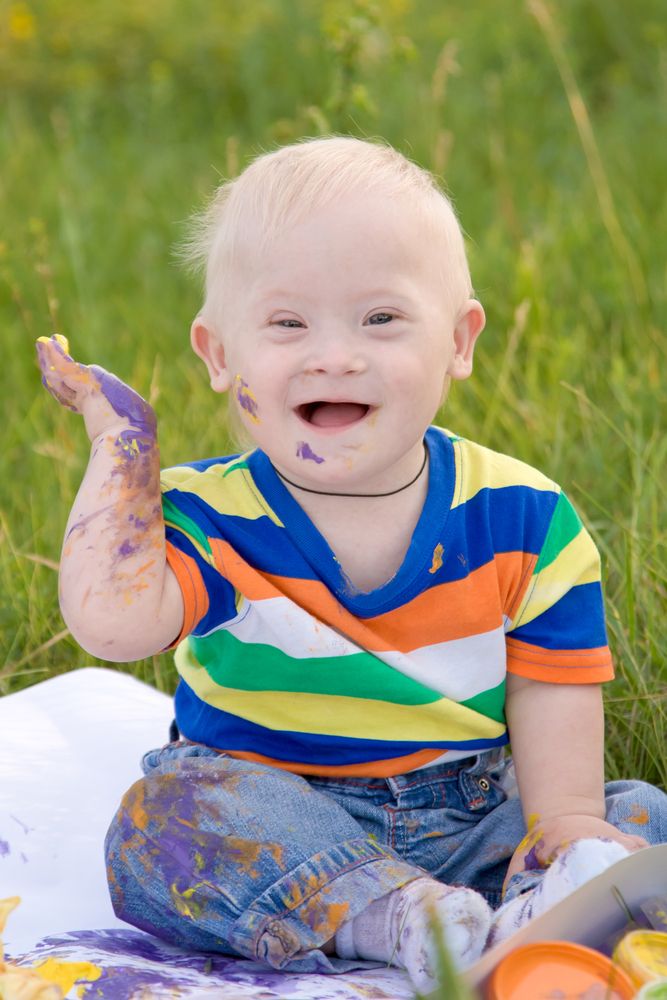 The library includes books, magazines and articles, and even educational videos.
The library includes books, magazines and articles, and even educational videos.
But here parents face another problem: there is a lot of information on the Internet from very different sources, methods of early development. How to deal with all this and build a route for your child?
And here again, the psychological and pedagogical support of parents is needed. The specialist must support, first of all, the parent precisely as a parent, that is, a person who can best understand his child and help him.
The teacher's task is to explain what developmental strengths a child with Down syndrome has, how to use them, helping the child to be more successful.
Lesson with the use of a developmental panel - business board. Marfo-Mariinsky Convent. Photo by Deacon Andrei Radkevich
One of the common mistakes parents make early on is to focus on developing academic skills.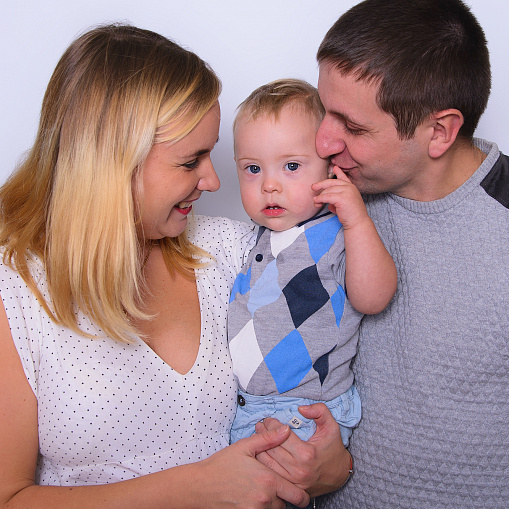 For a small child, this is, for example, the recognition of colors, geometric shapes, and the like.
For a small child, this is, for example, the recognition of colors, geometric shapes, and the like.
And the key factor in this period is the establishment and development of the right relationship with the mother and other family members, how the daily life of the child is adjusted. It is important, let's call it that, involving contact, involving in joyful communication and interaction, in the development of everyday and social skills. When such contact is established, both the development of speech and mental development will go more successfully.
It is important to keep in mind that children with Down syndrome are all very different, just like normal children. They have different preferences and inclinations.
Someone likes to dance, someone likes to look at pictures or play with the constructor. You need to look for what a particular child will like and what he will do better, without rushing into any popular trend.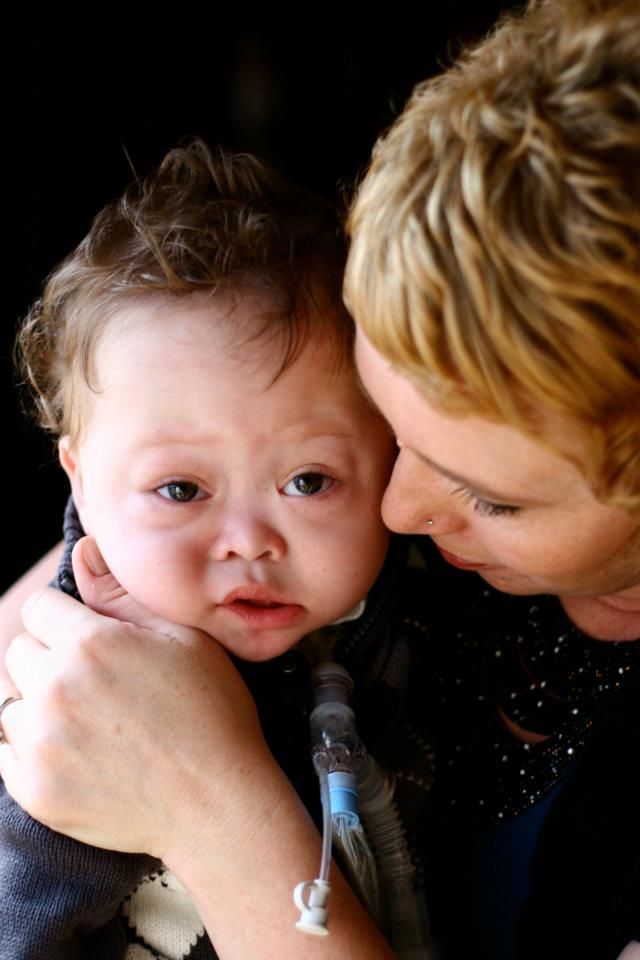 It is very important to educate a child with SD as an individual with their own preferences.
It is very important to educate a child with SD as an individual with their own preferences.
It is important to understand that there is no medical treatment for Down syndrome per se, but there are a number of health problems that often accompany it. These are, for example, diseases of the heart, thyroid gland. There is a schedule for health examinations of a child with Down syndrome, and it must be followed in order not to miss the moment when medical assistance is needed. But at the same time, one must be very careful about proposals to conduct a course of treatment with one or another drug in order, for example, to spur the development of speech.
To date, there are no medications whose effectiveness in the “treatment” of DM has been proven, and all over the world the main approach to helping such children is considered to be psychological and pedagogical.
Our foundation promotes those methods that have been proven effective in scientific studies, information about them can be found on our website.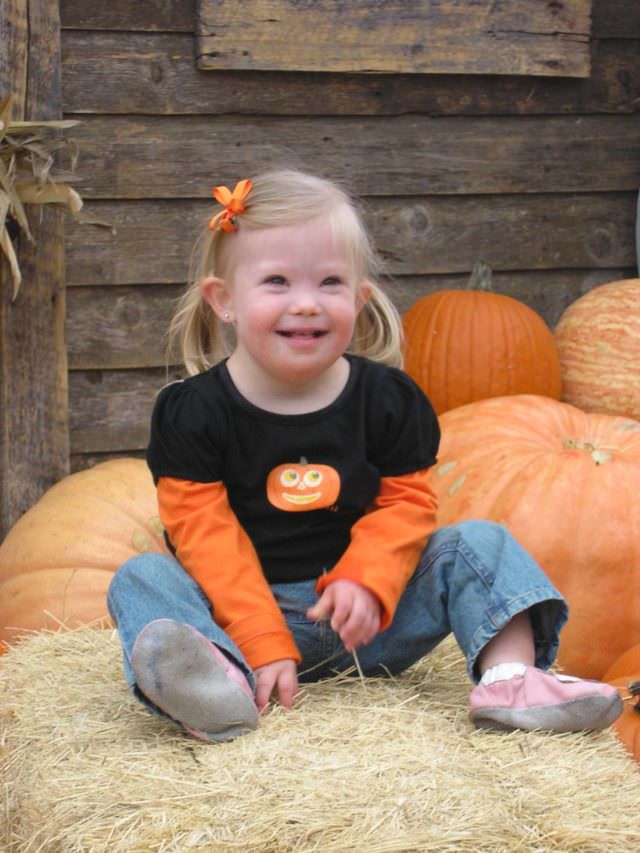
There are treatments that are very popular with families with children with diabetes. This is, for example, dolphin therapy. Many children love it very much, because it is a great pleasure: there is water, and movement, and play, and communication with cute animals.
In this sense, dolphin therapy can be useful, like any positive emotional and sensory experience, but we warn parents: do not treat this activity as a method of developing speech and expect immediate results.
Dolphin therapy will give a good emotional stimulus, but for the successful development of speech, classes with a speech therapist are very important.
There are even more exotic therapies, for example, some "specialists" suggest boosting speech with medicinal leeches. This is clearly not worth the time and money.
Of course, it's good when there are centers within walking distance that provide comprehensive early care for children with Down syndrome and their parents. In St. Petersburg there is an Institute for Early Intervention, in Pskov and Krasnoyarsk there are centers of curative pedagogy. Local state organizations work well in Samara, there is a whole family support system.
In St. Petersburg there is an Institute for Early Intervention, in Pskov and Krasnoyarsk there are centers of curative pedagogy. Local state organizations work well in Samara, there is a whole family support system.
But so far there are not enough such organizations in regions, especially remote ones. Often they arise on the basis of parental public organizations. There are such organizations in different regions of Russia: Yekaterinburg, Ryazan, Omsk, Kirov, Barnaul, Nizhny Novgorod, Ufa. Many of them are our partners. You can find their contacts on our interactive map.
As part of the practical implementation of the State Concept of Early Assistance, two pilot regions were selected to develop a model of supporting families with children with special needs, the Sverdlovsk Region and the Perm Territory. But waiting for the system to run in is too long, and our foundation, together with our partners, whom I mentioned above, is striving to help families now.
In any case, there are already contacts of our psychologists in maternity hospitals, already now you can get face-to-face or correspondence consultations with early development teachers, speech therapists, defectologists, and psychologists. Also in our center are group classes for children from 6 months to 7 years and classes for schoolchildren.
Memo to parents
-
After learning about the diagnosis of the baby, try to find contacts and get help from a psychologist. This will allow you to accept a new life situation and find a resourceful, emotionally balanced state for communicating with your baby. If you live in Moscow, you can contact a Downside Up specialist and talk to him by phone, skype, arrange an in-person meeting. Phone +74993671000
-
Find out which help centers are available in your area. Contact the Downside Up website for information support
-
At the Downside Up Family Support Center, you can get a set of literature free of charge, sign up for a face-to-face consultation, or get expert advice at the Consultative Forum.
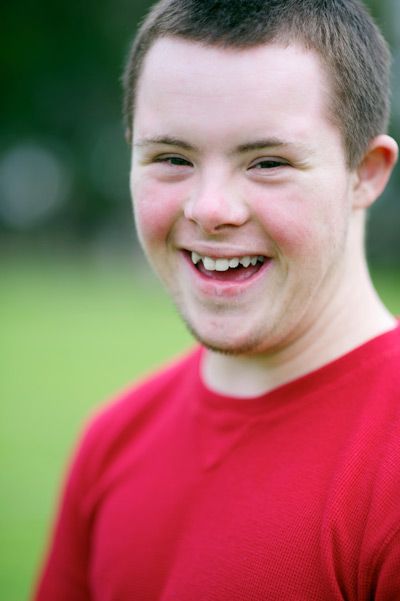 More information about the Foundation's programs can be found here
More information about the Foundation's programs can be found here -
The main thing for your child is an involving and developing contact with mother and other family members, a calm and friendly atmosphere, a well-established life and the inclusion of the baby in the daily life of the family. Achieving this should be your main goal early on.
-
When choosing a developmental program for your child, rely on one of the psychological and pedagogical approaches that have proven effective in children with Down syndrome. You can find out about them on the Downside Up website, call and consult with specialists from the fund or specialists from relevant organizations in your region.
-
When choosing additional developmental activities, do not strive at all costs to follow fashion trends. Act on the basis of the characteristics of your child, relying on his strengths and interests.
-
To date, there is no effective medical therapy for Down syndrome.
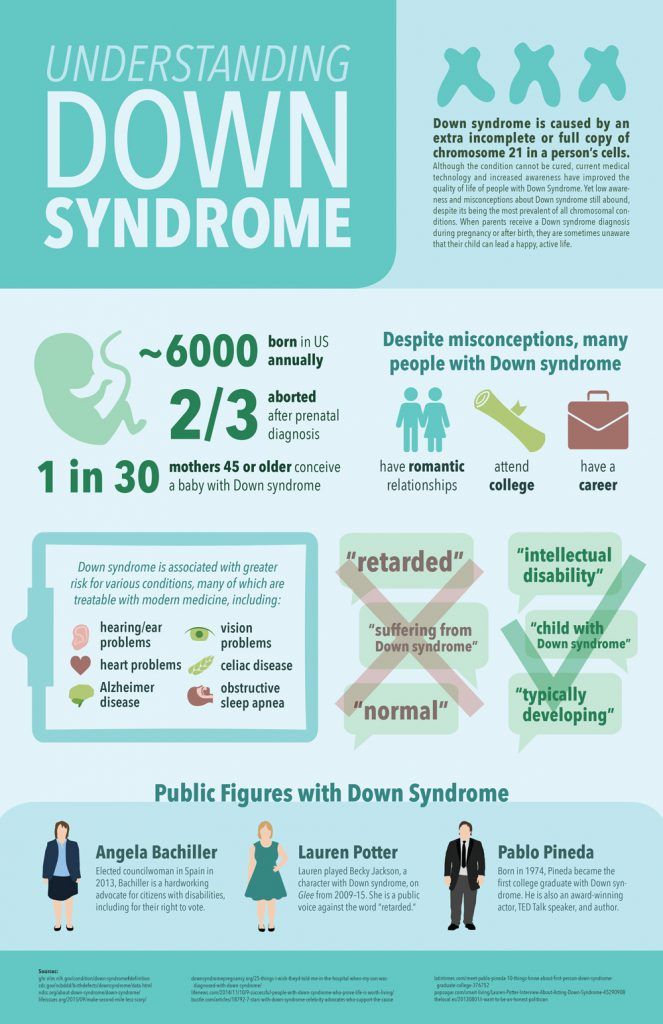 In this case, the child needs a medical examination and observation to identify concomitant diseases and their timely treatment. A sample survey schedule can be found here. You can also get a doctor's consultation on the Downside Up website form "Doctor's Advice"
In this case, the child needs a medical examination and observation to identify concomitant diseases and their timely treatment. A sample survey schedule can be found here. You can also get a doctor's consultation on the Downside Up website form "Doctor's Advice" -
From the many different offerings on the market for services for children with DS, choose those that are at least guaranteed not to harm the child, and best of all, those whose effectiveness has been proven in scientific studies. Try to collect as much information as possible from different and independent sources before spending time and money on this or that treatment.
How to help orphans with Down syndrome
Society's attitude towards children with Down syndrome is shrouded in myths. It is erroneously believed that such children cannot become full-fledged members of society. Therefore, such babies are more often than others left in orphanages and less often adopted. How are things really? Marina Korotkova and Elena Romanova, speech pathologists from orphanage No. 24, talked about the social aspect of adoption and how we can help a foster family with a special child.
How are things really? Marina Korotkova and Elena Romanova, speech pathologists from orphanage No. 24, talked about the social aspect of adoption and how we can help a foster family with a special child.
— Are there many children with Down syndrome in your institution? How often do you have to work with them?
- E.R .: We have to deal with children with Down syndrome in 45% of cases. The state is not yet ready to properly perceive such children and support their parents. They are persuaded to abandon children with this syndrome already in maternity hospitals.
— It turns out that the high percentage of Russian parents who refuse children with this syndrome is a problem that needs to be solved at the state level?
- Society as a whole is not ready either. And, what is the saddest thing, no constructive proposals are being made to solve this problem. Fortunately, there are centers like DownsideUp that can provide real help.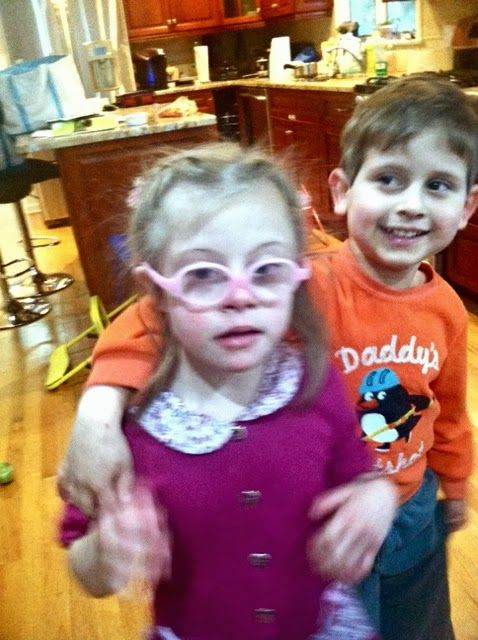 We also learned from them to understand these special children and work with them.
We also learned from them to understand these special children and work with them.
M.K.: These children are not getting smaller. If earlier it was about women over 40, now such children are born to younger parents.
— Is Down syndrome a syndrome or is it a diagnosis?
- I think that this is more of a diagnosis, but it's not just him that worries, but the accompanying medical diagnoses. As a rule, these are heart disease, autism, a weak immune system.
— What are the main problems in working with these children?
- All children with Down syndrome have some degree of developmental delay. At the same time, they are very different: there are weaker ones who do not give in to classes, there are those who grasp everything quickly. In any case, work with them is slower than with ordinary children.
E.R.: The minimum plan in our orphanage is to teach these children to serve themselves, to hold a spoon, to undress, to show something with a gesture. To teach this to a child with this syndrome, it can take a completely different amount of time. One will be on his feet in a little over a year, and the other will learn to sit only by the age of four. They are not amenable to any schemes and norms.
To teach this to a child with this syndrome, it can take a completely different amount of time. One will be on his feet in a little over a year, and the other will learn to sit only by the age of four. They are not amenable to any schemes and norms.
М.К.: Now there are talks about closing the children's homes and distributing children to families. But the situation is such that children with Down syndrome will be taken last. Therefore, I think that children's homes, such as ours, should exist, if only for the sake of helping children with the syndrome, their natural or adoptive parents. Here they can learn how to deal with such children.
— The efforts that you put in are leveled in the boarding school, where do the children then end up?
Е.Р.: It is very sad when our well-behaved children with Down's syndrome leave us for a boarding school. The problem is that all children are treated equally there. And such a special child needs to smile once again, take his hand, kiss him.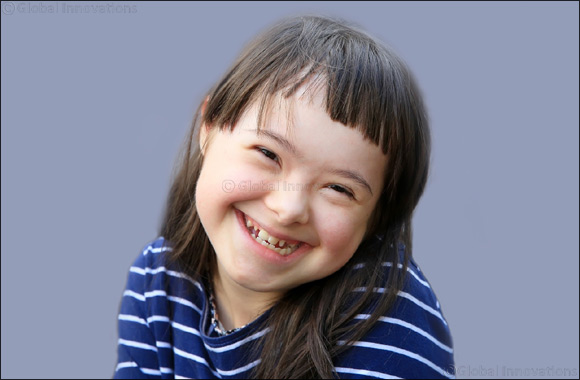 They are very affectionate and contact with an adult is very important to him. They need an extra incentive. They need to be teased again. We were lulled, but not there. And there are more children there, and the attitude is a little different.
They are very affectionate and contact with an adult is very important to him. They need an extra incentive. They need to be teased again. We were lulled, but not there. And there are more children there, and the attitude is a little different.
We had a case when a girl we had nurtured stopped going to a boarding school. And she was a very good girl who did not ask for special attention to herself. Calm, good... Planted - sits, put - lies, put at the counter - stands. But we motivated her, and she is sitting in a boarding school, well, that's good.
— Will it be easier for a child with such a syndrome to develop if he is taken into a family after your orphanage?
М.К.: Of course, development in the family will go much faster. Our institution is a closed space where children see only their group, the street where they walk and a certain circle of people. In the family, this space is much wider.
In addition, a child with Down syndrome will develop faster if he sees normally developing peers around him, because he will want to be the same as everyone else.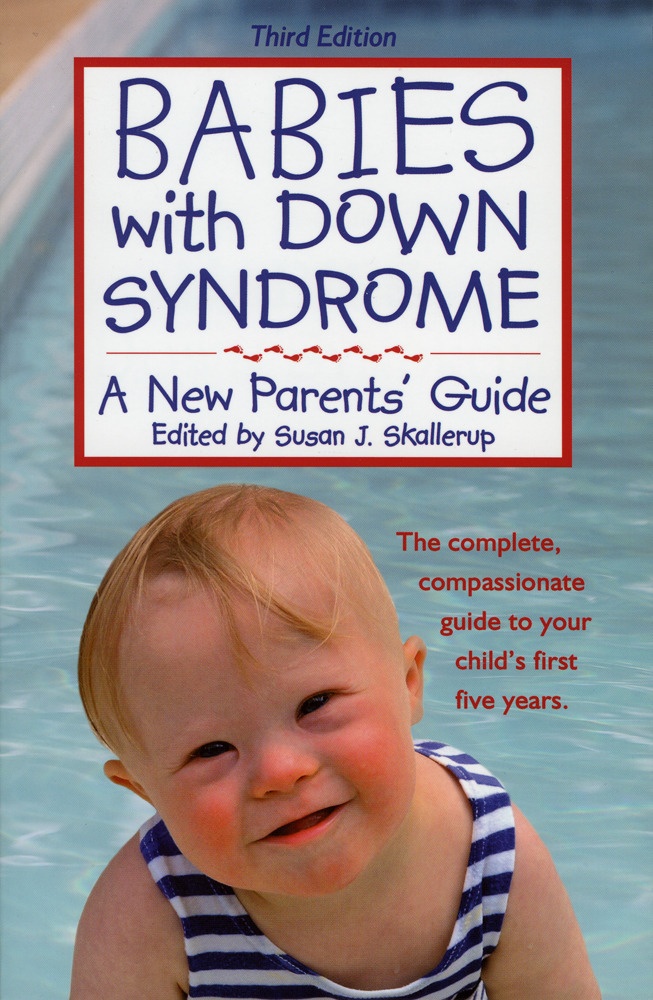
— What problems should potential adoptive parents of children with Down's syndrome be prepared for?
— For the first three years, such a child needs medical care and support, and here they need qualified assistance, which our or similar orphanages can provide. At the same time, you need to know that you cannot leave one such child. Therefore, foster parents can keep the child with us for the first time and take them away for the weekend. At the same time, they will come and learn how to communicate with such a child at home, how to develop him.
M.K.: It must be remembered that our society is not yet ready for such children. You will have to be prepared for the specific reaction of others when you go out for a walk with such a child. Difficulties can also arise with the definition of them in school and kindergarten.
Our society in relation to such children exists under the rule of myths. After all, the fact that such children are not subject to socialization is a myth, because a child with Down syndrome is teachable. Slower than others, but trainable.
Slower than others, but trainable.
Over time, he will still learn to speak, read, but this takes time, patience, which not everyone can have.
ER: Perhaps it will be easier to adopt children with Down syndrome for people living in rural areas, where it will be easier for him to go through socialization. There is no need to be seven spans in the forehead, but at the same time, helpers are needed on earth. It would be good for them in monasteries or religious communities…. They will not become academicians, professors, mathematicians, but they can become full-fledged members of our society.
— In other words, it would be better for such a child to be in a human-oriented environment with a humane philosophy, which our society currently lacks in relation to such children ... But while the children are still small, what else can be done?
- They need to be constantly motivated, held by the handle, be constantly with him. If left unattended, a child with Down syndrome will develop like a plant.




